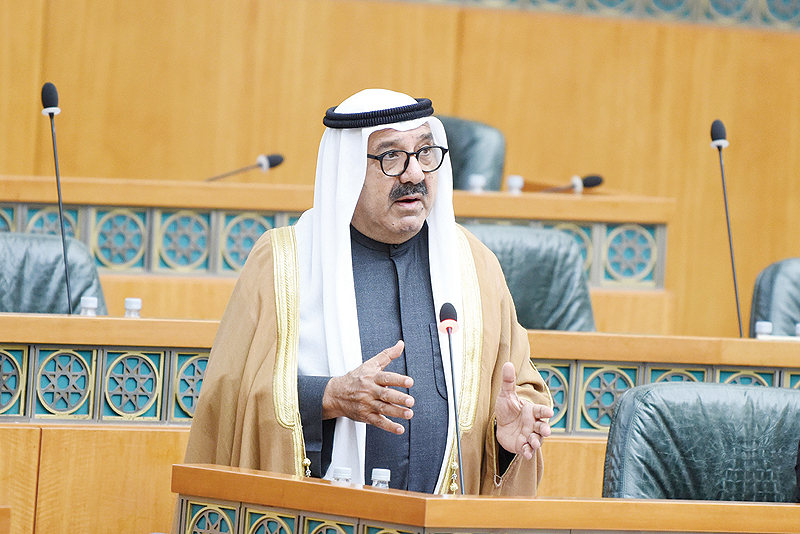
KUWAIT: The National Assembly yesterday overwhelmingly approved in the first reading a key amendment to the labor law in the private sector to increase annual leave from 30 to 35 days. All 45 MPs present voted for the amendment, which will become final when the Assembly holds the second and final voting on the law. The government did not object but refused to make it retroactive from 2010, saying it is not possible to apply the law in this fashion. The law applies to both Kuwaitis and expatriates working in the private sector. The last time the annual leave was increased was in 2010, when the current labor law underwent massive changes.
The Assembly also asked the housing ministry to investigate allegations that official documents show that 400 couples who applied for government housing are in fact "male couples". MP Abdullah Al-Roumi said Minister of State for Housing Affairs Jenan Bushehri has said that authorities found the names of husband and wife applicants were all male names. He said that these alleged forgers did so to benefit from housing allowance and housing loans provided by the government.
Bushehri, who was present during the Assembly debate, agreed to investigate the issue. The revelation came during a special debate on the housing problem, as MPs claimed that the number of those waiting for government housing is still very large despite government assurances to distribute more houses. MP Saleh Ashour accused the government of lacking a clear picture of how to tackle the housing problem in the country, adding this issue relates mainly to Kuwaiti youths, who represent some 65 percent of the population.
He said only six percent of Kuwait's territory is utilized for housing, and accordingly the problem is not the unavailability of land for housing or a lack of funds, but in the management. Ashour called for establishing border cities like other countries in the world. First Deputy Prime Minister and Defense Minister Sheikh Nasser Sabah Al-Ahmad Al-Sabah said the government has plans in place to set up border cities, adding that Kuwait has a free trade zone with Iraq and the economic zone project in the north. He said details of these projects will be made public soon. He said the economic city in the north will be launched with both Iraq and Iran.
The minister said that there are two major projects in the north - Silk City, which has been merged with the islands' project and the economic zone, both of which will require investments between $400 billion to $650 billion. Investments will be open to all and the Chinese will contribute to the management of Mubarak Al-Kabeer Harbor in Boubyan Island and will have the right to select the investments they want.
Bushehri stressed that the government is continuing with its plans to resolve housing problems by providing 12,000 units annually to cut the waiting period, which some MPs claim has exceeded 15 years. MP Omar Al-Tabtabaei said there are around 100,000 housing applications with the ministry, adding that large numbers of citizens have refused houses in certain areas. MP Abdulkarim Al-Kandari criticized the government's plans to send Kuwaiti citizens to border cities while good and nearby residential areas like Jleeb Al-Shuyoukh are populated by unmarried expatriates.
Roumi's announcement about the 400 male couples triggered uproar in the house, as he himself clashed with MP Al-Humaidi Al-Subaei. Kandari said these are clear forgery cases and must be referred for criminal investigations. The Assembly then voted to ask the housing minister to investigate these cases and report back to the Assembly within two months, and then refer the issue to the public prosecution if proven. Several MPs called on the government to resort to residential towers instead of building standalone houses in a bid to accelerate the process of distributing houses to citizens.
During yesterday's session, the Assembly approved amendments to the food law in which it toughened penalties against those trading in spoiled food products, as MPs complained of rife corruption in this field. The Assembly also rejected a draft law for the right of obtaining information, because MPs found that some articles are suspected to violate the constitution.
By B Izzak










